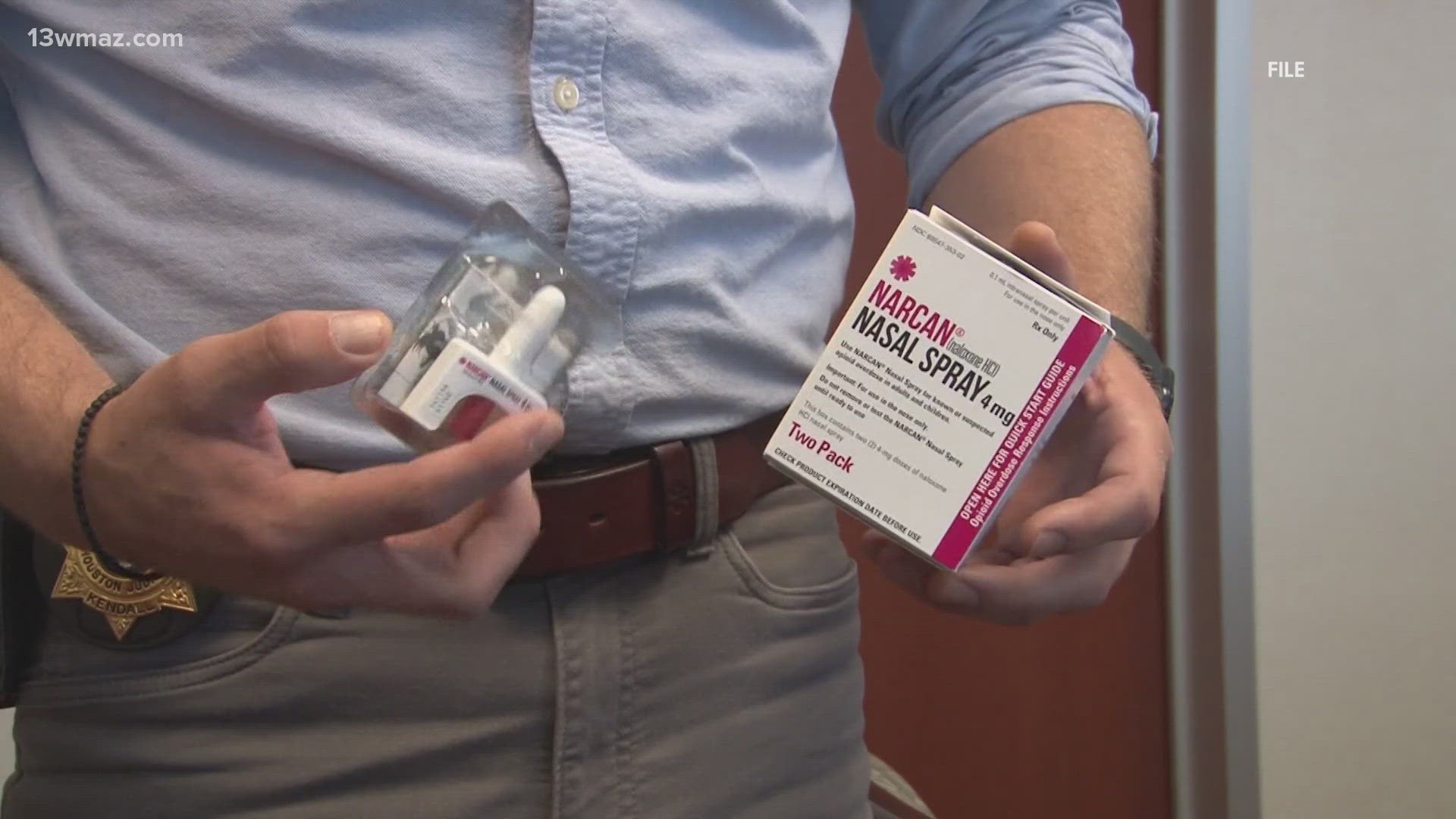HOUSTON COUNTY, Ga. — Georgia’s fight against the opioid epidemic is taking a significant step forward with the approval of $44.4 million in funding from the Georgia Opioid Settlement Advisory Commission.
These funds will support statewide intervention projects, offering renewed hope for communities ravaged by opioid misuse.
The state panel made its recommendations for how the first round of funding from a major $638 million settlement with opioid manufacturers and distributors should be spent, backing a wide range of projects.
The Georgia Opioid Settlement Advisory Commission approved a total of $44.4 million last week for 130 projects as part of the first year of a two-decade-long program. Many of the projects are focused on treatment, prevention, supporting people in recovery, increasing the availability of the overdose-reversing drug naloxone, and boosting research.
In 2023, District Attorney Will Kendall held a news conference about the county's collaborative approach to tackling the crisis.
“All of our local agencies were in agreement that we have a problem. A problem of a serious nature for which we needed to set aside other business and focus our efforts countywide,” Kendall stated.
Houston County’s joint task force made significant progress, including 38 arrests over a 40-day crackdown and the distribution of dozens of Narcan doses to reverse opioid overdoses.
District Attorney-elect Eric Edwards said it's unclear if Houston County will get funds yet, however he hopes to use the money to combat the crisis through their existing intervention efforts.
Those include equipping first responders with Narcan, as well as drug and mental health accountability courts for individuals struggling with addiction.
Edwards emphasized that while overdose numbers are declining, he wants to see them drastically drop.
“The numbers in the opioid epidemic may be trending downward now, but we want them way, way, way down,” Edwards noted. “We’re evolving our understanding of how opioids have played into crimes committed in Houston County.”
Edwards added, if the county gets funding, the joint-task force will continue its commitment to maintaining transparency and efficiency in managing the funds.
“We track where all of our money goes, where it comes from, where it goes out to," Edwards elaborated. "We’re used to strict grant reporting requirements.”
According to Houston County Commissioners Community Planner Jacob Cox, the county received $528,495.43 over the past few years to combat the opioid epidemic.
As fentanyl and other opioids continue to devastate lives, Edwards said combating the crisis will remain a top priority during his tenure.
“We are going to make sure we keep all of our people up to date with the best equipment, best knowledge, best training on how to respond to these things,” Edwards said said.
The Georgia Department of Behavioral Health and Developmental Disabilities expects to finalize grant allocations by the end of the year.
If you or someone you know is in emotional distress or facing a crisis, dial 988 for immediate support. For emergencies, call 911.

